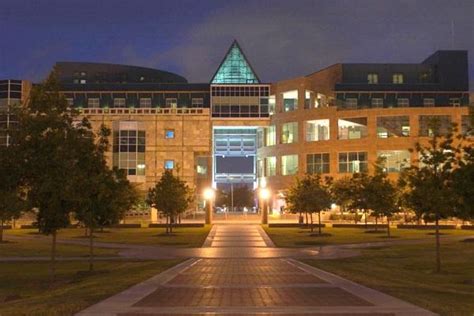Mechanical Engineering at UT San Antonio: An Overview
UT San Antonio’s Mechanical Engineering program consistently ranks among the top in the nation, renowned for its exceptional faculty, cutting-edge research, and transformative educational experiences. With a curriculum rooted in solid theoretical foundations and hands-on learning, our graduates enter the workforce equipped with the skills and knowledge to solve real-world challenges and drive technological advancements.

Faculty Expertise and Research Excellence
The faculty of the Mechanical Engineering department at UT San Antonio is comprised of renowned experts in various fields, including fluid mechanics, thermodynamics, materials science, robotics, and energy systems. Their research spans a broad spectrum of disciplines, including:
- Microfluidics and bioprinting
- Advanced composite materials
- Renewable energy and energy storage
- Robotics and control systems
- Computational fluid dynamics
The department’s research expenditures exceed $6 million annually, demonstrating the groundbreaking work conducted by our faculty. Their collaborations with industry partners and research institutions worldwide foster innovation and transformative technologies.
Curriculum and Learning Experiences
The Mechanical Engineering curriculum at UT San Antonio emphasizes a holistic approach that combines theoretical coursework, practical laboratory experiences, and design projects. Students engage in state-of-the-art facilities, including:
- Advanced Materials Characterization Laboratory
- Additive Manufacturing Laboratory
- Robotics and Automation Laboratory
- Thermal Transport Laboratory
Through hands-on projects, internships, and research opportunities, our students develop the technical proficiency, problem-solving abilities, and critical thinking skills essential for success in the field.
Career Prospects and Industry Impact
Graduates of the Mechanical Engineering program from UT San Antonio are highly sought after by employers in various industries, including:
- Aerospace and defense
- Automotive
- Energy
- Manufacturing
- Medical devices
Our alumni hold leadership positions in industry, government agencies, and research institutions, making significant contributions to technological advancements.
Mechanical Engineering for the 21st Century and Beyond
As the world faces unprecedented challenges, mechanical engineering plays a pivotal role in developing innovative solutions to address issues in energy, sustainability, healthcare, and transportation.
Energy and Sustainability
Mechanical engineers are at the forefront of developing renewable energy technologies, such as solar panels and wind turbines. They also work on improving energy efficiency in buildings and industrial processes.
Healthcare and Medical Devices
Mechanical engineers design and develop medical devices, such as pacemakers and artificial limbs. They also contribute to the development of new surgical techniques and medical imaging technologies.
Transportation
Mechanical engineers are involved in the design and development of new transportation systems, including electric vehicles, autonomous vehicles, and high-speed rail. They also work on improving the safety and efficiency of existing transportation systems.
Tips and Tricks for Success in Mechanical Engineering
- Develop strong mathematical and analytical skills. Mechanical engineering requires a strong foundation in mathematics and science. Take courses in calculus, physics, and statics.
- Get involved in hands-on projects. Participate in internships, research projects, and design teams. This will give you valuable experience and help you develop your technical skills.
- Join professional organizations. ASME (American Society of Mechanical Engineers) is a great organization for mechanical engineering students. It offers networking opportunities, career development resources, and technical conferences.
- Seek out mentors. Find a faculty member or industry professional who can provide you with guidance and support. A mentor can help you navigate your academic and professional journey.
Why Mechanical Engineering Matters
Mechanical engineering is a diverse and dynamic field that offers endless opportunities for innovation and problem-solving. It is a field that shapes the world around us, from the cars we drive to the buildings we live in. Mechanical engineers play a vital role in addressing the challenges of the 21st century and creating a better future.
Benefits of Mechanical Engineering
- Mechanical engineering is a highly lucrative field. The median annual salary for mechanical engineers is over $90,000.
- Mechanical engineers are in high demand. There are more jobs available than qualified candidates.
- Mechanical engineering is a versatile field. Graduates can work in a variety of industries, including aerospace, automotive, energy, manufacturing, and medical devices.
Tables
| Metric | Value |
|---|---|
| Enrollment | 500+ undergraduate students, 200+ graduate students |
| Research Expenditures | $6 million+ annually |
| Faculty-to-Student Ratio | 1:15 |
| Placement Rate | 95%+ within six months of graduation |
